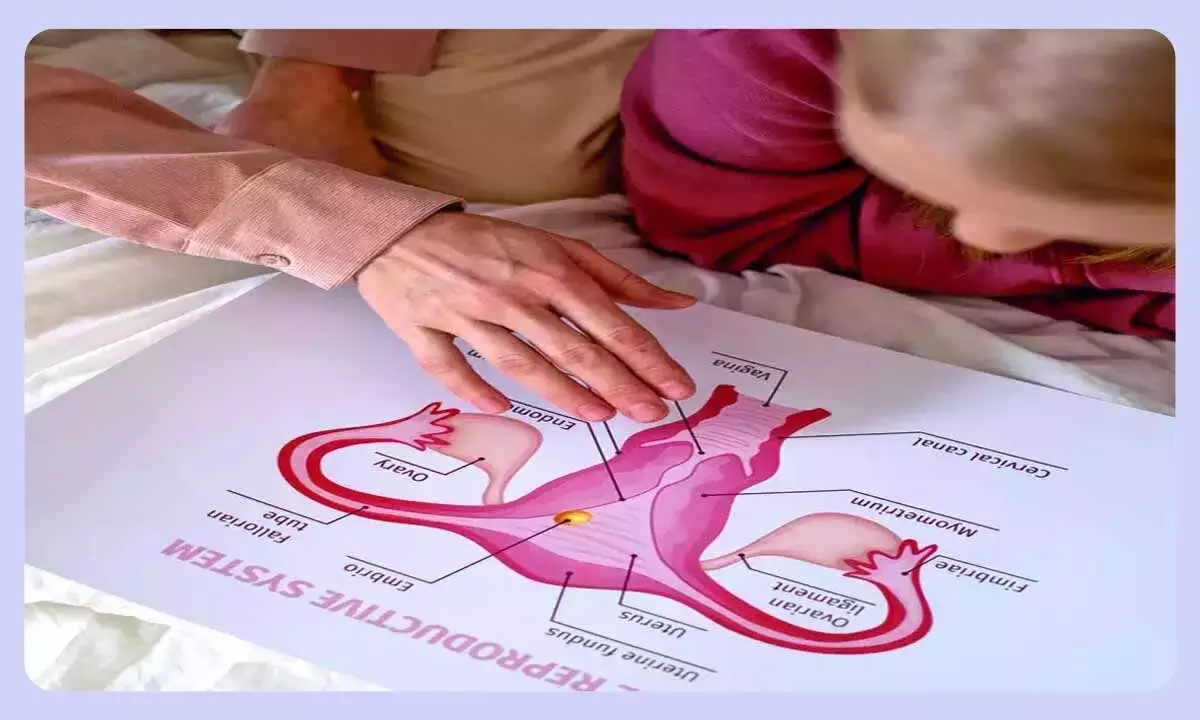Live
- Prateeksha Srivastava says she seldom meets fellow music composers Rusha, Blizza, in person
- KTR Accuses Government of Brutality Against Farmers, Calls for Immediate Action
- Manchu Manoj Attends Shooting Amid Family Controversy
- BWF World Tour Finals: Treesa-Gayatri defeat Malaysian pair to keep semis hopes alive
- MUDA case: Complainant Krishna asks Lokayukta to file new plaint on CM Siddaramaiah on ED’s report
- Airport capex in India to cross Rs 60,000 cr in fiscals 2025-2027 to handle growing traffic: Crisil
- Five-Year-Old Boy Dies After 55-Hour Rescue from Borewell in Rajasthan's Dausa
- Chaos in Parliament over Congress-George Soros link claims, BJP MP poses questions
- Bus Driver Arrested After Deadly Accident in Mumbai’s Kurla; 42 Injured
- Community lunch, a ritual to prevent drought in Adoni
Just In
Allo Health's Sex-Ed Survey Sheds Light State of Sex Ed in India, on World Sexual Health Day


With the global celebration of World Sexual Health Day on September 4th, Allo Health is delighted to unveil the findings of an extensive Sex-Ed survey conducted among 8625 participants in India.
With the global celebration of World Sexual Health Day on September 4th, Allo Health is delighted to unveil the findings of an extensive Sex-Ed survey conducted among 8625 participants in India.
The primary objective of this survey was to understand the sources of sex ed in India and how those shape our perceptions of sex, pleasure and sexual health. The survey findings highlight the importance of sexual health education in our daily lives.
Conducted over the past 2 months, the survey received responses from a diverse range of participants across 530+ cities, genders & age groups. It provides valuable insights into the state of sexual health awareness and practices in the country.
Primary discovery from the survey reveals that a significant 72.41% of individuals did not receive any form of sex education during their time in school or college.
With the absence of structured sexual education in India, people have turned to alternative means to gain knowledge about sex and sexuality. According to their responses, they have identified various sources for sexual education, including:
• A concerning 57.32% of respondents admitted to using pornography (both videos and literature) as a source of sexual education. This is particularly worrisome given that pornography provides a highly inaccurate depiction of sexual experiences. Moreover, it's worth noting that government actions have led to restricted access to video pornograph.
• Despite the widespread presence of misinformation on social media platforms, a significant 65.42% of individuals turn to these websites as a source of information about sex and pleasure
• Merely 7.93% of individuals believe that they can depend on their parents for adequate sex education, while a substantial 59.77% would trust their friends and peers for such information
The survey results also brought to light opinions about the appropriate age for comprehensive sex education (CSE). According to UN guidelines endorsed by the WHO, comprehensive sexuality education can commence as early as 5 years of age, with a focus on age-appropriate content. Despite concerns that this approach may be misconstrued as encouraging young children to discuss explicit sexual matters, the reality is that CSE for young children primarily covers essential topics such as understanding body anatomy, distinguishing between good and bad touch, and promoting consent. These topics help establish a healthy foundation for their future understanding of sexuality.
The survey indicated that a majority of respondents (48.02%) believe that CSE should only commence at the age of 10 years or older.
The survey also provided valuable insights into other significant aspects, such as:
• 65.71% of individuals feel that pornography influences their expectations of real-life sexual experiences.
• 31.58% of men still consider a person's virginity to be a significant factor in determining whether to marry them or not.
• 55.71% of individuals believe that sexual compatibility is an essential prerequisite for any relationship to succeed. Interestingly, this percentage exceeds 50% among each gender group individually as well
• A significant 58.33% of respondents indicated that they would opt for home remedies, traditional therapies, or consult non-specialist doctors rather than seeking assistance from a sexual health expert if they were dealing with a sexual health disorder
• In a positive finding, 46.77% people believe premarital sex is acceptable, regardless of whether it's with a casual or committed partner.
This World Sexual Health Day, Allo Health urges all stakeholders, government entities, healthcare providers, educators, and civil society organisations, to come together and collaborate in endeavours to enhance sex-ed & the state of sexual health in India.
Allo Health hopes to inspire open conversations around sexual wellbeing and are committed to provide accurate and expert verified sexual health and sex ed resources free of cost as they advance their efforts within this critical yet tabooed domain through advocacy, community involvement & other initiatives.

© 2024 Hyderabad Media House Limited/The Hans India. All rights reserved. Powered by hocalwire.com






